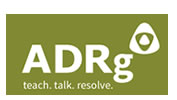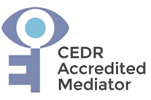
All About People
Need help to resolve your business, personal or employee conflicts & disputes?
It can be difficult to find a way to settle disagreements between two or more people. When the disagreement is related to your architectural design or building project, mediation could be the solution.
In this section we'll explore what mediation is and why it's so beneficial for building projects disputes. We'll also break down the benefits of mediation for the parties involved.
Mediation is a process whereby one or more impartial third-party mediators assist those involved to move forward and reach mutually agreeable outcomes.
There are many reasons why mediation is preferred to arbitration, litigation or other forms of dispute resolution. The key advantages of mediation are:
Usually, with mediation the duration is up to a day and does not require court application fees or additional legal support (though this depends on whether you have instructed lawyers).
The length of time from enquiry to conclusion is far quicker than other procedures because there are no court waiting lists.
The time is purely dependent upon the availability and preparedness of those involved. It can happen within a couple of weeks, if everyone is ready and available.
The parties are in control of the outcomes and there is no third-party decision-maker, unless you instruct your mediator to engage with Evaluative Mediation.
This usually means that enforcement of outcomes is not an issue as people tend to stick to what they have mutually agreed.
Mediation can be used at any stage of the process to help clarify or facilitate better communication. There does not need to be an actual dispute or conflict.
To understand how mediation works, it's important to understand the different roles that are played by the mediator and the participants.
The mediator doesn't take sides and isn't affiliated with either party in the dispute. They are a neutral sounding board for both parties involved in the conflict, meaning they can listen objectively without providing any input on whether they agree with one side of the argument more than the other. The role of the mediator is to help those involved re-phrase, understand and better communicate the issues and aims for resolution.
The Participants' role is to act in good faith i.e. to genuinely attempt to fix the issues. There is no obligation to come to a formal agreement but 90 per cent of matters settle because people are open minded and allow the conversation to happen.
Supporting individuals can serve an important role to ensure that the participants are informed and can make decisions based on the information available, and to help protect the Participants' interests. Supporting individuals should not impose their own opinions and should not be obstructive in the conversation and mediation process.
The mediator is a neutral third party that facilitates the discussion between the parties involved in a dispute.
The participants are the people who are involved in the dispute.
These may be your legal or other professionals, or colleagues (if appropriate).
Mediation in the built environment is suitable for most conflict and disputes. It is ideal for the matters in this sector because the process is quick and empowers those involved to make pragmatic decisions and keep the project on track, avoiding further delays and increased costs.
The main areas which mediation can assist are:
Mediation can be useful when it comes to disputes about architectural designs because it provides an early opportunity for those involved to come together and find a resolution. The mediation process encourages communication between the involved parties and leads to greater understanding among them. It can be a practical and speedier and more cost effective alternative to arbitration or more formal dispute resolution approaches.
Architectural disputes typically involve issues about the design, delivery or management of a building project, or the fees involved. Where expectations are not set out clearly or there is a breakdown in communication, this can create tension and lead to conflict. Where this is not managed effectively, this can escalate.
Mediation is ideal for these types of matters as it is a safe and confidential platform to help re-align the relationship between the professionals and clients. It is best used where tension is starting to rise and can be used as a support mechanism a little like using translation services.
Building projects are founded on the existence of a contract. A contract which clearly sets out the important aspects of the working relationship can still be the subject of a dispute.
Typical contractual dispute issues involve delays to delivery, increased costs, mismanagement, poor service, ending a contract, poor communication, mismanagement of expectations, and the wording and meaning of the terms of the contract.
Often with these types of disputes, much of the core issues relate to the relationship between the people involved. Mediation provides an opportunity to focus on the important elements and help salvage the relationship. Most people want the service to continue and even where this is not possible or desired, closure and certainty of outcome can be achieved with mediation.
Residential building projects can be a single service provided by a sole trader or a larger project with multiple trades people and organisations. The client is typically a consumer of these services and may have a project manager or may be project managing the entire build.
Issues can arise at any stage and where there is an inexperienced or lay project manager, it is a complex process to deal with issues which may impact on other elements of the build. Good communication and relationship management are essential to keep projects on track.
Where communication or relationships breakdown, mediation can be used to help improve these aspects. Delays can increase costs substantially and getting the issues resolved quickly should be at the forefront of every project manager's mind. Mediation is a quick process and delivers good value for money. It is important to engage with a mediator at the early stage of conflict to avoid these escalating to a dispute or legal battle.
Commercial building projects are larger scale and involve many different professionals and clients. There are more stringent planning regulations, and the build is governed by a commercial contract such as a JCT.
Delays and increased costs are serious concerns for such project managers. These can lead to fines and revocation of planning approval, loss of income and of potential commercial tenants. In addition, claims for payment issues, construction administration, sub-contractor relationship management, and main contractor issues, provide a layer of complexity which increases the risk of delays and project overruns.
Builds in the commercial space are fraught with these issues for project managers and Employers Agents. Mediation provides a substantive opportunity to deal with these issues before they escalate, and to help keep the build on track.
Contact us and we will help you navigate your options and next steps.

Strategic Advice and Guidance for you and your organisation. Our accreditations:



